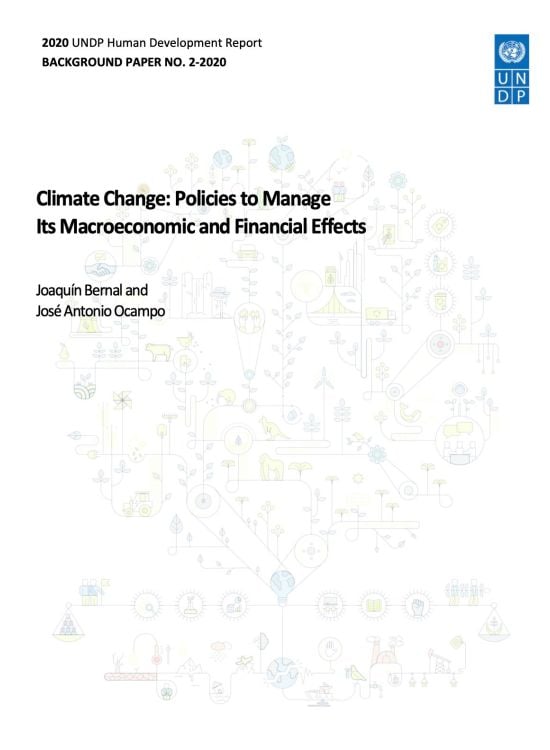Climate Change: Policies to Manage Its Macroeconomic and Financial Effects

UNDP (United Nations Development Programme). 2020. Climate Change: Policies to Manage Its Macroeconomic and Financial Effects. New York.
Climate Change: Policies to Manage Its Macroeconomic and Financial Effects
It is increasingly recognized that climate change generates major macroeconomic and financial risks. There are physical risks associated with the disasters generated by hydrometeorological events, and gradual but persistent changes in temperatures that have structural impacts on economic activity, productivity and incomes. Additionally, the process of adjustment towards a lower-carbon economy, prompted by changes in climate-related policies, technological disruptions and changes in consumer preferences, generates transition risks. After a brief analysis of the macroeconomic, fiscal and tax policies to manage these risks, this paper concentrates on: (i) how financial policies can help improve transparency and climate-related risk disclosure in financial institutions’ balance sheets and asset prices, particularly with appropriate prudential regulation and supervision; and (ii) how those risks could be taken into account in monetary policy and central bank balance sheets and operations. The paper ends with some reflections on the COVID-19 pandemic and the will for a ‘green’ recovery.

